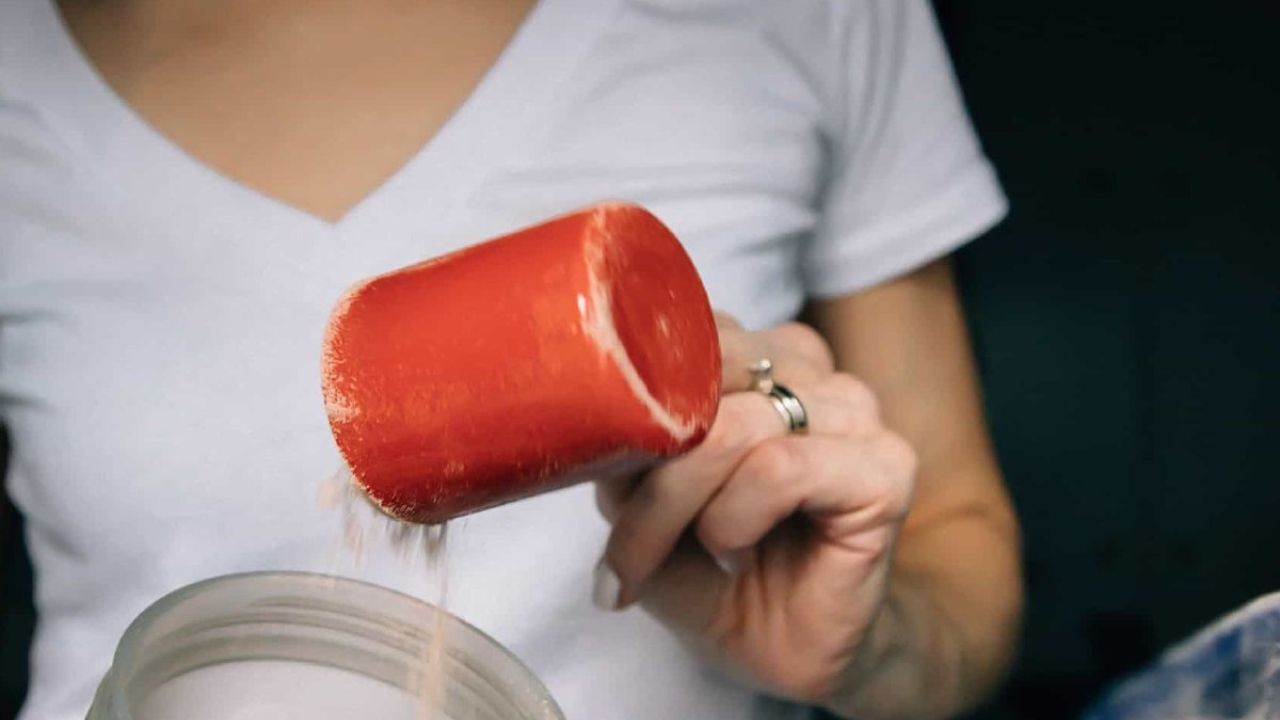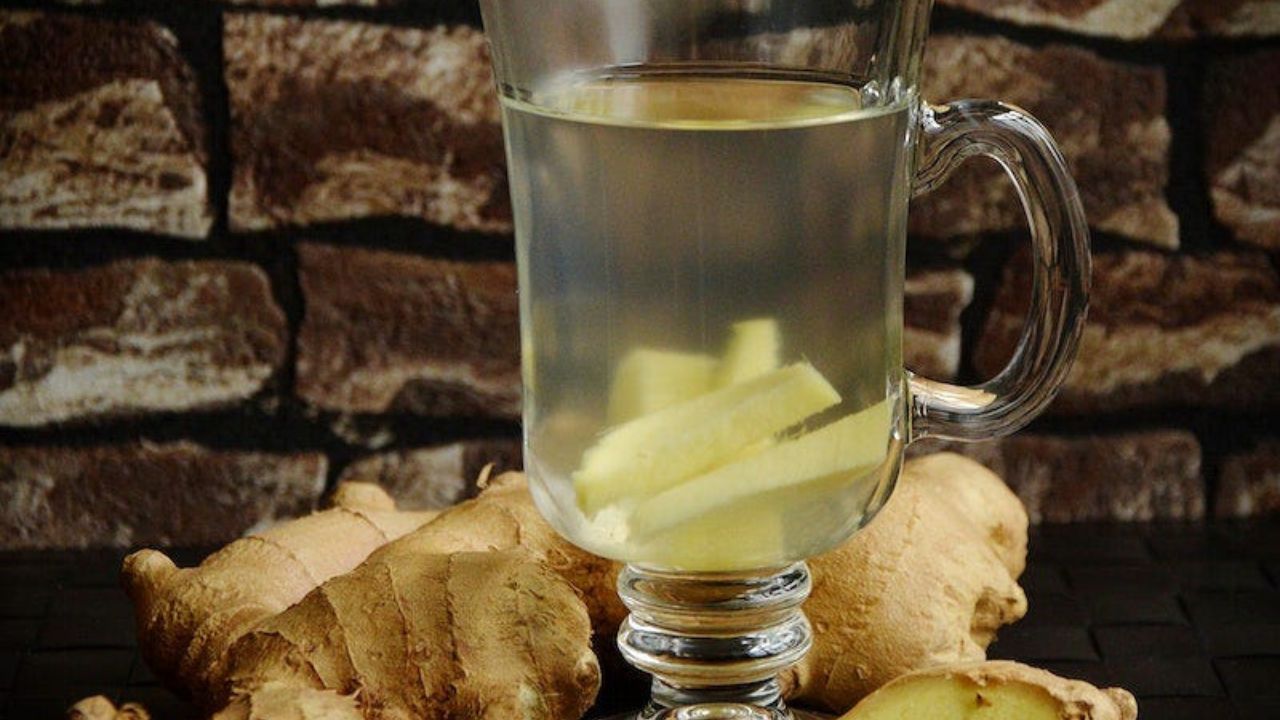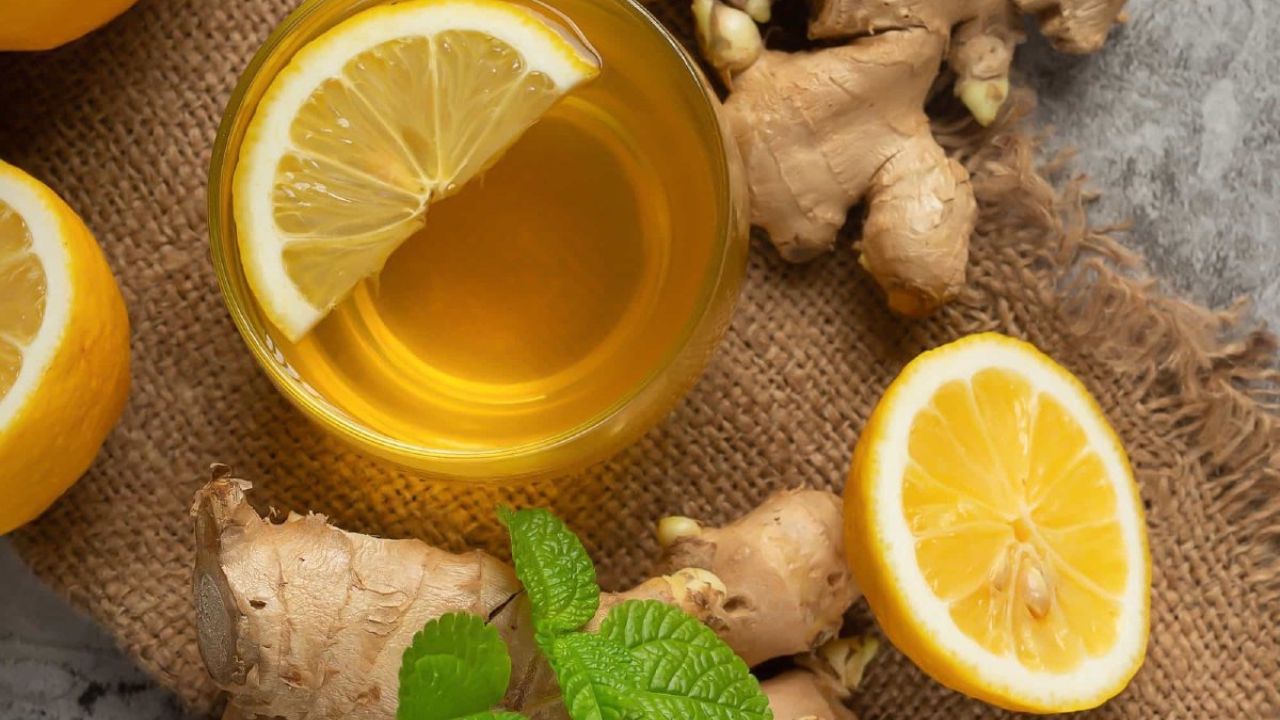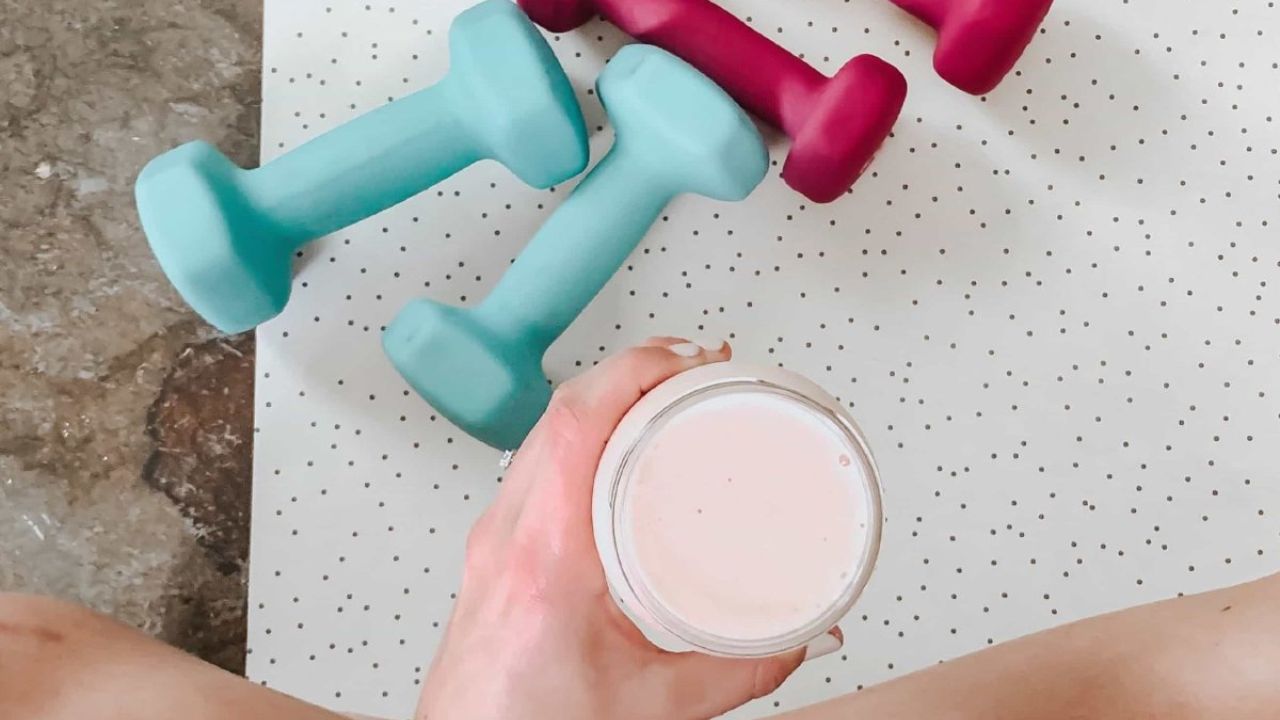
In the pursuit of optimal post-workout recovery, harnessing the power of nature can offer remarkable results.
This article explores the top 10 compounds that have shown evidence-backed efficacy in supporting the body's recovery process.
From creatine, the muscle powerhouse, to omega-3 fatty acids, fueling recovery from within, each compound offers unique benefits for repair and growth.
Discover how these natural compounds can aid in reducing inflammation, restoring strength and flexibility, boosting endurance, and promoting overall well-being.
Creatine: The Muscle Powerhouse
Creatine, a widely studied and renowned compound, has been hailed as the muscle powerhouse for its remarkable ability to enhance strength and performance during intense workouts.
Creatine is a naturally occurring amino acid derivative found in meat and fish, and it plays a crucial role in the production of adenosine triphosphate (ATP), the primary source of energy for muscle contractions.
Numerous scientific studies have demonstrated the effectiveness of creatine supplementation in improving muscle strength, power, and overall exercise performance.

Additionally, research suggests that combining creatine with other compounds such as turmeric, known for its role in muscle growth, and collagen, which has been shown to benefit recovery and performance, may further enhance the positive effects of creatine supplementation.
However, more research is needed to fully understand the synergistic effects of these combinations.
Omega-3 Fatty Acids: Fueling Recovery From the Inside Out
Research suggests that incorporating omega-3 fatty acids into post-workout nutrition may accelerate recovery by reducing inflammation and promoting muscle repair. Omega-3 fatty acids, such as EPA and DHA, have been shown to have numerous health benefits, including their ability to modulate the body's inflammatory response. This can be particularly beneficial for individuals engaging in intense exercise, as it can help manage post-workout inflammation.
In addition to omega-3 fatty acids, other natural compounds have also been found to aid in recovery and pain relief. These include turmeric, which has anti-inflammatory properties and can help manage post-workout inflammation. Tart cherry, on the other hand, has been shown to reduce muscle soreness and promote recovery.
BCAAs: Building Blocks for Repair and Growth
Incorporating an appropriate amount of BCAAs into your post-workout routine can significantly enhance the body's repair and growth processes.
Branched-chain amino acids (BCAAs) are essential nutrients that play a crucial role in muscle repair and growth. They are composed of three amino acids: leucine, isoleucine, and valine.
Studies have shown that supplementing with BCAAs can lead to increased protein synthesis, reduced muscle soreness, and improved exercise performance. By promoting muscle protein synthesis, BCAAs help repair damaged muscle tissue and support muscle growth.

Additionally, BCAAs have been found to reduce muscle inflammation, which is essential for faster recovery. In combination with omega-3 fatty acids, which are known for their anti-inflammatory properties, BCAAs can provide synergistic benefits for muscle repair and inflammation reduction.
Incorporating BCAAs into your post-workout routine can be an effective strategy for maximizing your recovery and optimizing your muscle growth.
Turmeric: The Natural Anti-Inflammatory
Turmeric, a vibrant yellow spice commonly used in Indian cuisine, is gaining recognition for its powerful anti-inflammatory properties.
Curcumin, the main active compound in turmeric, has been extensively studied for its ability to reduce inflammation in the body.
Research suggests that incorporating turmeric into your post-workout routine may help enhance recovery by reducing muscle soreness and promoting joint health.
Turmeric's Powerful Benefits
Harnessing the potent anti-inflammatory properties of turmeric can significantly enhance post-workout recovery, promoting optimal muscle repair and reducing inflammation. Turmeric, a vibrant yellow spice derived from the Curcuma longa plant, has been used for centuries in traditional medicine for its healing properties. Recent scientific research has shed light on the numerous benefits of turmeric, including its bioavailability and antioxidant properties.
Here are five key ways in which turmeric can boost post-workout recovery:

Anti-inflammatory effects: Turmeric contains curcumin, a compound known for its strong anti-inflammatory properties. By reducing inflammation, turmeric can help speed up the recovery process and alleviate post-workout soreness.
Enhanced muscle repair: Turmeric's antioxidant properties can help protect muscle cells from oxidative damage caused by intense workouts, allowing for faster repair and regeneration.
Joint health: Turmeric has been shown to support joint health and alleviate joint pain, making it an excellent supplement for athletes and fitness enthusiasts.
Immune system support: Turmeric can strengthen the immune system, helping the body fight off infections and illnesses, which can be beneficial during periods of intense physical activity.
Mental well-being: Turmeric has been linked to improved mood and cognitive function, which can contribute to an overall sense of well-being and motivation in the recovery process.
Incorporating turmeric into your post-workout routine can be as simple as adding it to your meals or taking it as a supplement. However, it's important to note that turmeric's bioavailability can be enhanced by consuming it with black pepper or fat, as these substances can increase its absorption in the body.
As always, it's recommended to consult with a healthcare professional before making any significant changes to your diet or supplementation routine.
Enhancing Post-Workout Recovery
Additionally, regularly implementing scientifically-proven methods and supplements can effectively enhance post-workout recovery.
Natural remedies and post-workout supplements have gained popularity due to their potential to aid in muscle recovery, reduce inflammation, and improve overall exercise performance.
One such natural remedy is tart cherry juice, which has been shown to reduce muscle soreness and inflammation.
Another popular supplement is creatine, which has been extensively studied and proven to enhance muscle strength and power.
Omega-3 fatty acids, found in fish oil, have also been found to reduce inflammation and promote muscle recovery.
Other natural remedies and supplements that may aid in post-workout recovery include ginger, turmeric, BCAAs (branched-chain amino acids), and magnesium.
It is important to note that while these natural remedies and supplements have shown promising results, it is always recommended to consult with a healthcare professional before incorporating them into your post-workout routine.

Natural Inflammation Fighter
The natural inflammation fighter discussed in this article highlights the potential benefits of incorporating turmeric into your post-workout recovery routine. Turmeric, a spice commonly used in Indian cuisine, contains a compound called curcumin, which has been shown to possess anti-inflammatory properties. By reducing inflammation in the body, turmeric can aid in the recovery process after intense exercise.
Here are five reasons why turmeric can be an effective natural remedy for post-workout recovery:
- Curcumin has been found to reduce muscle soreness and improve recovery time.
- Turmeric's anti-inflammatory properties can help alleviate joint pain and swelling.
- It may boost the body's antioxidant capacity, protecting against exercise-induced oxidative stress.
- Turmeric has been shown to enhance immune function, reducing the risk of post-workout infections.
- It can aid in the repair and regeneration of damaged muscle tissue.
Incorporating turmeric into your post-workout routine can be an alternative treatment to traditional methods, providing natural relief from inflammation and promoting a faster recovery process.
Collagen: Restoring Strength and Flexibility
Collagen is a protein found in our bodies that plays a crucial role in maintaining joint health and supporting muscle recovery. It is known to restore strength and flexibility by promoting the production of new collagen fibers, which can improve the overall integrity of our connective tissues.
Numerous studies have shown the potential benefits of collagen supplementation in reducing joint pain and enhancing post-workout recovery.
Collagen for Joint Health
As we delve into the realm of joint health, it is crucial to consider the remarkable benefits that collagen brings to restoring strength and flexibility.
Collagen supplements, specifically collagen peptides, have gained popularity for their potential to support joint health and alleviate symptoms of joint pain and stiffness. Here are five key benefits of collagen peptides for joint health:

Improved joint flexibility: Collagen peptides promote the synthesis of new collagen, which can improve joint flexibility and range of motion.
Enhanced cartilage health: Collagen peptides may help maintain the integrity and health of cartilage, the connective tissue that cushions joints.
Reduced joint pain: Studies suggest that collagen peptides can reduce joint pain, making it easier to perform daily activities without discomfort.
Increased joint stability: Collagen peptides support the production of collagen in tendons and ligaments, contributing to better joint stability.
Faster recovery from exercise: Collagen peptides have been shown to accelerate recovery from exercise-induced joint pain and inflammation.
Enhancing Muscle Recovery
Incorporating collagen peptides into a post-workout routine can lead to enhanced muscle recovery and improved overall performance. Collagen is a protein that plays a crucial role in the structure and function of muscles, tendons, and ligaments. Supplementing with collagen peptides has been shown to promote the synthesis of new muscle tissue and enhance muscle repair.
Additionally, collagen peptides have been found to accelerate recovery time by reducing inflammation and oxidative stress, both of which can hinder the healing process. Studies have also shown that collagen supplementation can increase muscle strength and power, allowing individuals to perform at a higher level during workouts.

Tart Cherry: Nature's Pain Reliever
Research suggests that the consumption of tart cherry before and after intense physical activity can contribute to the alleviation of exercise-induced muscle pain and inflammation. Tart cherry, a powerful antioxidant-rich fruit, has gained attention for its potential benefits in promoting post-workout recovery.
Here are five reasons why tart cherry is nature's pain reliever:
Anti-inflammatory properties: Tart cherry contains compounds that help reduce inflammation, which is a common cause of muscle pain.
Antioxidant effects: The high levels of antioxidants in tart cherry can help combat oxidative stress and protect muscles from damage.
Melatonin content: Tart cherry is a natural source of melatonin, a hormone that regulates sleep patterns and aids in recovery.
Nutrient density: Tart cherry is packed with essential vitamins, minerals, and phytochemicals that support overall health and muscle repair.
Versatility: Tart cherry can be consumed in various forms, such as juice, dried fruit, or supplements, making it convenient for individuals seeking pain relief.

Incorporating tart cherry into your post-workout routine may help enhance recovery and reduce muscle soreness, allowing you to enjoy the freedom of pain-free movement.
Beta-alanine is a non-essential amino acid that has been shown to have endurance-enhancing benefits and performance-boosting effects. It is a popular supplement among athletes and fitness enthusiasts due to its ability to increase muscle carnosine levels, which can help buffer the build-up of lactic acid during exercise.
Research suggests that beta-alanine supplementation can improve exercise performance, particularly in high-intensity and endurance activities.
Endurance-Enhancing Benefits
The potential of beta-alanine in delivering endurance-enhancing benefits has garnered attention from fitness enthusiasts and athletes alike. Beta-alanine is just one of many endurance-boosting supplements that individuals can incorporate into their fitness routines.
However, it is important to note that there are also natural remedies for muscle recovery that can aid in improving endurance. Some of these natural remedies include:
Tart cherry juice: Known for its anti-inflammatory properties, tart cherry juice can help reduce muscle soreness and enhance recovery.
Turmeric: This spice contains curcumin, which has been shown to reduce inflammation and promote muscle repair.

Fish oil: Omega-3 fatty acids found in fish oil can help decrease muscle damage and inflammation after intense exercise.
Magnesium: This mineral plays a crucial role in muscle function and can alleviate muscle cramps and soreness.
Ginger: Ginger has been used for centuries for its anti-inflammatory properties and can aid in post-workout recovery.
Incorporating these natural remedies alongside endurance-boosting supplements like beta-alanine can help individuals achieve peak performance and support their overall fitness goals.
Numerous studies have demonstrated the efficacy of incorporating beta-alanine into fitness regimens for noticeable improvements in performance. Beta-alanine is a naturally occurring amino acid that helps increase muscle carnosine levels. This increase in carnosine levels has been linked to enhanced muscular endurance, reduced fatigue, and improved exercise capacity.
In addition to beta-alanine, several other performance-enhancing supplements have gained popularity in recent years. Creatine is one such supplement that has been shown to increase muscle strength and power, while caffeine has been found to improve focus and reduce perceived exertion during exercise.
Natural remedies for muscle recovery include tart cherry juice, which has been found to reduce inflammation and muscle damage, and ginger, which has anti-inflammatory properties.

It is important to note, however, that individual responses to these supplements and remedies may vary, and it is always advisable to consult with a healthcare professional before incorporating them into your fitness routine.
Vitamin D: The Sunshine Vitamin for Recovery
A significant amount of scientific research supports the role of adequate levels of vitamin D in promoting optimal post-workout recovery. Vitamin D, also known as the sunshine vitamin, is essential for overall health and well-being. When it comes to recovery after exercise, vitamin D offers several benefits that can enhance the healing process.
Here are some key points to consider regarding vitamin D and post-workout recovery:
- Vitamin D promotes muscle protein synthesis, which is crucial for repairing and rebuilding muscle tissue.
- It helps reduce inflammation and oxidative stress, allowing for faster recovery and reduced muscle soreness.
- Vitamin D plays a vital role in bone health, supporting the repair of microdamage caused by intense physical activity.
- It boosts the immune system, helping to prevent infections and illnesses that can hinder recovery.
- Vitamin D supplementation may be necessary for individuals with low levels, especially those who live in areas with limited sunlight exposure.
Overall, ensuring adequate levels of vitamin D can greatly contribute to a faster and more efficient post-workout recovery process.
Magnesium: Relaxation and Replenishment
Magnesium, a vital mineral, plays a crucial role in promoting relaxation and replenishment, making it an essential element for post-workout recovery. This mineral is involved in over 300 metabolic reactions in the body, including muscle and nerve function, protein synthesis, and energy production.
One area where magnesium shines is in its ability to improve sleep quality. Research suggests that magnesium supplementation can help regulate neurotransmitters involved in sleep, such as melatonin and GABA, leading to better sleep patterns and overall sleep quality.
Furthermore, magnesium has been found to be effective in reducing muscle cramps. It helps relax muscles and supports proper muscle function by regulating calcium levels.
Therefore, ensuring adequate magnesium intake through diet or supplementation can be beneficial for athletes and individuals looking to enhance their post-workout recovery and promote better sleep.
Rhodiola Rosea: Adaptogenic Support for Stress and Recovery
Interestingly, Rhodiola Rosea provides adaptogenic support for stress and recovery, making it a promising natural compound to explore in the context of post-workout rejuvenation.
Adaptogens are a class of herbs and plants that help the body adapt to physical and mental stressors, promoting homeostasis and overall well-being. Rhodiola Rosea, in particular, has been shown to have several beneficial effects on the body, including reducing fatigue, improving mood, and enhancing cognitive function.
Its adaptogenic properties make it an excellent choice for athletes and fitness enthusiasts looking to support their recovery after intense workouts. Rhodiola Rosea works by modulating the body's stress response system, helping to regulate cortisol levels and reduce the negative impact of stress on the body.
Incorporating Rhodiola Rosea into your post-workout routine may help improve your overall stress management and enhance your recovery process.
- Reduced fatigue
- Improved mood
- Enhanced cognitive function
- Regulated cortisol levels
- Enhanced stress management
Frequently Asked Questions
What Are the Recommended Dosages for Each of These Compounds?
Recommended dosages for each compound can vary depending on the specific form and intended use. It is important to consult with a healthcare professional or follow product instructions to ensure proper dosage and maximize post-workout recovery benefits.
Are There Any Potential Side Effects or Interactions to Be Aware of When Taking These Compounds?
Potential risks and precautions should be considered when taking these compounds for post-workout recovery. It is important to be aware of any potential side effects or interactions that may occur to ensure safe and effective use.

Can These Compounds Be Taken Together, or Is It Better to Take Them Individually?
Taking compounds together or individually depends on the specific compounds and desired outcomes. It is recommended to consult with a healthcare professional to determine the best approach. The timing of compound intake should align with optimal absorption and utilization for post-workout recovery.
How Long Does It Take to Start Experiencing the Benefits of These Compounds?
The timeline for experiencing the benefits of these compounds varies depending on factors such as individual physiology, dosage, and consistency of use. It is important to note that results may differ among individuals due to variations in metabolism and overall health.
Are There Any Specific Dietary or Lifestyle Recommendations to Enhance the Effects of These Compounds?
To enhance the effects of post-workout recovery compounds, specific dietary and lifestyle recommendations can be followed. These may include consuming a balanced diet rich in protein and antioxidants, staying hydrated, getting enough rest and sleep, and engaging in regular physical activity.
Conclusion
In conclusion, incorporating these top 10 compounds into post-workout recovery routines can provide remarkable benefits for athletes.
From creatine's muscle-building properties to omega-3 fatty acids' ability to fuel recovery from within, each compound offers unique advantages.
BCAAs, turmeric, collagen, beta-alanine, vitamin D, magnesium, and Rhodiola Rosea all contribute to repairing and restoring the body after intense exercise.
By utilizing these natural compounds, individuals can enhance their recovery process and optimize their performance.

 Mobility trainingHome Fitness RecoverySports Injury PreventionPersonal Physical TherapyOrthopedic SolutionsPrivacy PolicyTerms And Conditions
Mobility trainingHome Fitness RecoverySports Injury PreventionPersonal Physical TherapyOrthopedic SolutionsPrivacy PolicyTerms And Conditions
